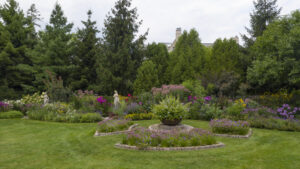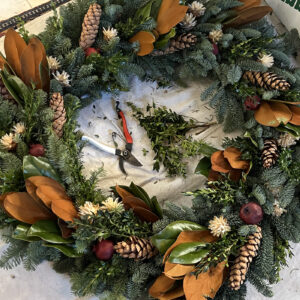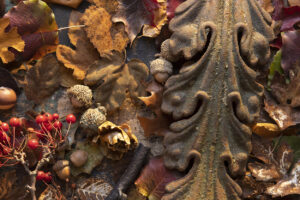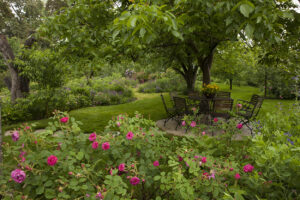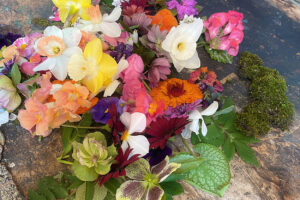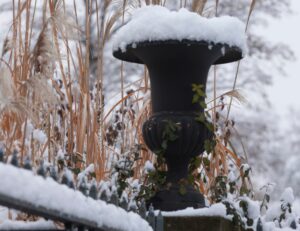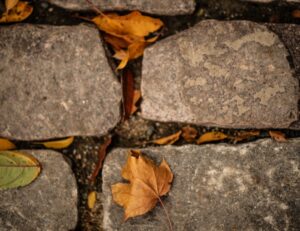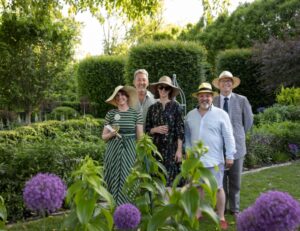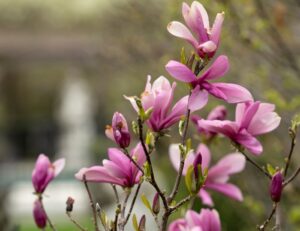Dear Fellow Fall-Loving Friends,
Once again, the fall season has crept up on us and that onset of winter is imminent once more.
As I write these words, the brilliant purple umbels of Vernonia are towering over the spent flower heads of the Eupatoriums and Monardas. The seasonal cerise and scarlet salvias are in their last blaze before frost. The hummingbirds and bees are acting a bit “kamikaze” these days hoarding nectar and pollen as the temperatures lower and days are obviously running short. All a reminder of the floral calendar that has been treasured since the herbaceous borders emerged in early May. Also reminding me of the little world we have created in our own gardens over the past decade.
Along with harvesting for Paul and I , staff and friends, I consciously leave some of the fallen fruit from the orchard for numerous bees to dine on. To my surprise this fall, our terrier Watson has a new found hankering for peaches sans pit… Lesser peach bits get tossed into the chicken yard along with the organic greens we’ve happily grown for our feathered friends. We went to a complete organic lawn care program three years ago now and we can freely add pulled weeds to the chicken diet and compost heap without worry of residual ill effects for any of us on the property or from flying in neighbors, staff, visiting guests, and resident canines. There is always an abundance of flower and fruit here to go around…a real blessing.
Not possessing an automated irrigation system was missed this drought year but reminded me of how resilient an established healthy plant in the right place can be and what a reward for all of our efforts. Those plants lost were often struggling from the last two wet years or were ill-placed or chosen in the first place. Lessons learned each year makes us true garden researchers for our clients and friends.
More and more, we are hearing of the adverse effects of climate change, and many things are becoming more apparent in our gardens here at 900, and in all of our gardens we tend. The weather extremes are more dramatic and frequent. Many plants, geographically or genetically further from our native populations of plants here are responding less predictably than in past years. Tender, less hardy plants are showing signs of survival but are not any easier to establish than in the past. Tropical and desert-based plants in containers have thrived in the more controlled environs of a hand watered pot. A huge overgrowth of chickweed and purslane in drier areas of the property oddly added weeding of our hottest bluestone gravel paved areas.
We have seen a drastic increase in garden rodents, snakes, and overhead hawks. Hardly any monarch butterflies or fireflies sadly, and an abundance of yellow jackets and many more honey bees. The frogs and toads that frequent the fountains are happy and the dragonflies continue to amaze. This really is a garden of Eden in many ways despite all the challenges for the garden residents.
Fall, Autumn, the shortening of day length, and the cooler evening temperatures always reminds me of the cycle of the seasons and of life. The older I get, the more appreciative I feel to have lived a life in the garden with all my flora and fauna friends. Each necessary for all of us to thrive, and deservedly worth all the efforts it takes to create our bit of paradise on state highway 43 in Lake Forest, Illinois.
May your fall season be full of beauty, reflection, good health, and fun with all that you hold dear.
Sincerely,
Craig Bergmann
Proprietor



